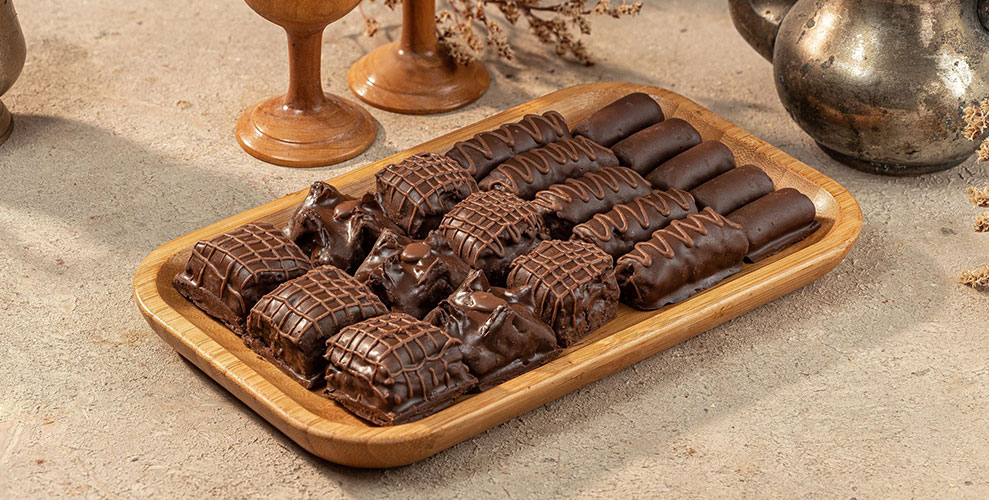
Baklava is more than just a beloved dessert. It is a symbol of culture, tradition, and shared history. Yet, one debate continues to stir excitement across culinary communities: is baklava Greek or Turkish? This question has sparked discussions among food historians, travelers, and dessert lovers for decades. Both Greece and Turkey passionately claim baklava as their own, and both cultures have deep historical connections to this iconic pastry. Because of this, baklava has become a dessert wrapped in mystery, heritage, and identity.
However, while people continue arguing about its roots, one fact will always remain: baklava is adored worldwide. And today, you can enjoy authentic Middle Eastern baklava right here in Karachi, thanks to Baklava Palace, a premium dessert shop offering a memorable baklava experience. Before you place your order, let’s uncover the fascinating story behind baklava’s origin.
Where Did Baklava Originate From?
To understand where baklava originated from, we must look back thousands of years into the culinary evolution of the Middle East and Mediterranean. Historians widely agree that baklava did not appear overnight. Instead, it emerged through layers of cultural exchange, trade routes, empires, and migration. Ancient civilizations in Central Asia, the Middle East, and the Mediterranean created early versions of layered pastries using nuts and honey. Over time, these ideas blended and improved across regions.
As societies interacted, recipes evolved. Techniques became more refined, and the earliest forms of baklava were born long before modern borders existed. Because baklava has deep historical ties to multiple ancient cultures, it is understandable why the question baklava is Greek or Turkish remains passionately debated. The dessert’s origins stretch across regions, making baklava a shared culinary heritage rather than the property of only one nation.
Is Baklava Greek?
Many Greeks passionately say yes when asked, Baklava is Greek. Their claim is rooted in centuries of Greek culinary tradition, especially on the Aegean islands and mainland areas influenced by Byzantine and Mediterranean food culture. Greek baklava versions are known for distinct layering methods and local nut preferences. Over hundreds of years, baklava became a staple in Greek celebrations, holidays, and family feasts, helping it integrate deeply into Greek identity.
Moreover, restaurants and pastry shops in Greece proudly present baklava as part of their national gastronomy. Greek cookbooks and family recipes have helped preserve baklava for generations. Therefore, it is understandable why Greece feels deeply connected to this dessert. However, the Greek explanation is only one part of the historical puzzle.
Is Baklava Turkish?
On the other side of the debate, many historians and chefs strongly believe that baklava is Turkish, and they support this claim with well-documented history. During the Ottoman Empire, baklava rose to global recognition. Ottoman palace kitchens in Istanbul famously refined the technique of ultra-thin pastry layers, turning baklava into a dessert of royalty. Records show that baklava trays were presented to soldiers and served during royal celebrations, religious events, and official ceremonies.
Because the Ottomans ruled vast regions, including territories that are now Greece, Turkey, the Balkans, and parts of the Middle East, baklava spread far and wide from Istanbul. This influence is a major reason many answer baklava as Greek or Turkish by pointing to Turkish culinary leadership during that era.
Today, Turkey celebrates baklava as a national dessert. Cities like Gaziantep are internationally recognized for baklava craftsmanship, further strengthening the Turkish claim.
Baklava Country of Origin
Given this shared history, how do we define the true baklava country of origin? The most balanced conclusion is that baklava evolved across regions influenced by ancient Middle Eastern, Mediterranean, and Ottoman cultures. It was not invented in a single moment, by a single nation, or in a single kitchen. Instead, it developed gradually and beautifully through cultural overlap.
Because of this, the is baklava Greek or Turkish debate has no absolute one-word answer. The dessert grew through shared history, shared flavors, and shared traditions. That is also what makes baklava special. It is a dessert that connects rather than divides.
So, Is Baklava Greek or Turkish? (Final Answer)
After examining both sides, the fairest conclusion is this: baklava is a shared culinary heritage with deep roots in both Greek and Turkish history, along with influence from older Middle Eastern and Central Asian traditions. While the debate may continue, baklava today belongs to everyone who enjoys it.
And no matter which history speaks to you, one fact remains: baklava is best enjoyed fresh, flavorful, and skillfully crafted. Therefore, instead of choosing a side in the debate, many dessert lovers focus on choosing the best bakery.
Here in Karachi, Baklava Palace gives you an authentic Middle Eastern baklava experience that honors the dessert’s rich past. You can enjoy the same cultural sweetness without traveling to Istanbul or Athens.
Why Baklava Still Unites Cultures
Desserts often reflect history, memory, and identity. Although people ask whether baklava is Greek or Turkish, the dessert itself tells a different story—one of unity, travel, and shared appreciation. Baklava brings families together, sweetens celebrations, and bridges cultural gaps. Whether served with tea, coffee, or after a meal, baklava continues to create joy everywhere it’s enjoyed.
Why Karachi Dessert Lovers Choose Baklava Palace
If you want to experience authentic Middle Eastern sweetness in Pakistan, Baklava Palace in Karachi is the ideal destination. The shop offers premium craftsmanship, delicate texture, and unforgettable flavor, created for those who appreciate quality. Instead of debating whether baklava is Greek or Turkish, you can simply enjoy perfection in every bite.
Even if you’re gifting, hosting, or treating yourself, ordering from Baklava Palace ensures a premium dessert experience that honors baklava’s rich legacy.

